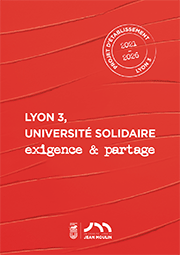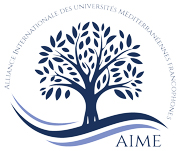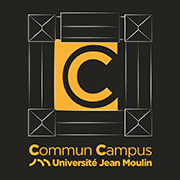AccueilRechercheProgrammes et productions scientifiquesThèsesThèses soutenuesThèses soutenues - 2023
-
Partager cette page
- Recherche,
- Philosophie,
PETIT-MONNIER Chloé
Langue et modernité : la question turque
Thèse en Philosophie, soutenue le 20 juin 2023.
Notre thèse propose une relecture de l’histoire des politiques linguistiques en Turquie dans la première moitié du XXe siècle à partir de la philosophie de Jacques Derrida. Les réformes linguistiques de 1928 et 1930 engagées par le pouvoir furent présentées par Mustafa Kemal comme les étapes nécessaires à la modernisation de la Turquie et le socle sur lequel édifier la nation turque. Notre intuition de départ est qu’il y a dans ces réformes et plus particulièrement dans le changement d’alphabet bien plus qu’une simple translittération, bien plus qu’une simple réflexion sur l’arbitraire du signe. Au-delà de la version de l’historiographie officielle et avec l’appui de l’historiographie critique contemporaine, nous proposons d’avancer vers la question du rapport de la souveraineté et du souverain à la langue en partant de l’écriture comme différance au sens de Derrida. Cela nous a permis d’avancer sur ces questions en poussant plus avant une réflexion sur le rapport de l’Etat à l’écriture, sur le choix de la phonétisation de l’alphabet présentée comme nécessaire, sur la mise en avant de la figure de Mustafa Kemal Atatürk présentée comme indissociable de ces réformes. Enfin, ce que nous avons reconnu à partir du corpus derridien, c’est un acte fondateur. Nous posons que l’acte de lire et d’écrire dans la langue nationalisée est au fondement du sentiment d’appartenance national et que ceux-ci composent, ensemble, l’acte même par lequel les Turcs s’inscrivirent dans l’histoire moderne compris comme politisation. Cependant, l’imposition par l’Etat d’une langue afin de constituer une nation pointe la question de la violence du politique et de la violence de la langue elle-même. Passer par la philosophie de Derrida nous permet de penser le fait que cette appropriation de la langue par le pouvoir n’aboutit jamais en totalité. L’homogénéité de la nation et de la langue reste un fantasme. Derrida invite à penser le fait qu’il faille garder la possibilité de l’autre, une ouverture à la venue – possible, imaginaire, attendue, crainte – de l’autre.
Our thesis proposes a rereading of the history of linguistic policies in Turkey in the first half of the 20th century based on the philosophy of Jacques Derrida. The linguistic reforms of 1928 and 1930 initiated by the government were presented by Mustafa Kemal as the necessary stages for the modernization of Turkey and the foundation on which to build the Turkish nation. Our initial intuition is that there is in these reforms and more particularly in the change of alphabet much more than a simple transliteration, much more than a simple reflection on the arbitrariness of the sign. Beyond the version of the official historiography and with the support of contemporary critical historiography, we propose to move forward towards the question of the relationship of sovereignty and the sovereign to language, starting from writing as differance in the sense of Derrida. This allowed us to move forward on these questions by pushing further a reflection on the relationship of the State to writing, on the choice of the phonetization of the alphabet presented as necessary, on the highlighting of the figure of Mustafa Kemal Atatürk presented as inseparable from these reforms. Finally, what we have recognized from the Derridian corpus is a founding act. We posit that the act of reading and writing in the nationalized language is at the foundation of the feeling of national belonging and that these together make up the very act – understood as politicization – by which the Turks inscribed themselves in modern history. However, the imposition by the State of a language to constitute a nation raises the question of the violence of politics and the violence of language itself. Going through Derrida's philosophy allows us to think about the fact that this appropriation of language by power never succeeds in its entirety. The homogeneity of nation and language remains a phantasm. Derrida invites us to think about the fact that we must keep the possibility of the other, an openness to the coming – possible, imaginary, expected, feared – of the other.
Keywords: Derrida, Atatürk, Nation, Writing, Difference, Sovereignty, Ghost, Language policy, Belonging.
Directeur de thèse : Samim AKGÔNUL
Membres du jury :
Mme DIREK Zeynep, Rapporteure, Professeure, Université de Koc, Istanbul, Turquie,
Mme KAMUF Peggy, Rapporteure, Professeur émérite, University of Southern California, Los Angeles, USA,
M. AKIN Salih, Professeur des universités, Université de Rouen, France,
M. SZUREK Emmanuel, Maître de conférence, Ecole des hautes études en sciences sociales, Paris, France.
Président du jury : Salih AKIN







